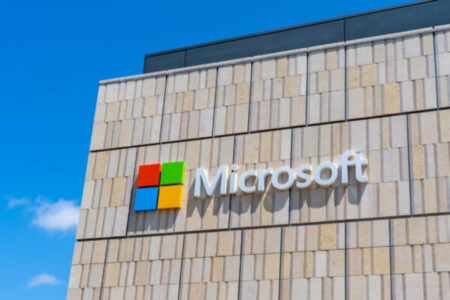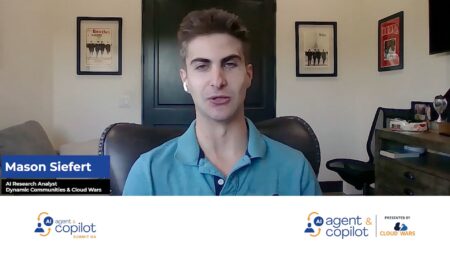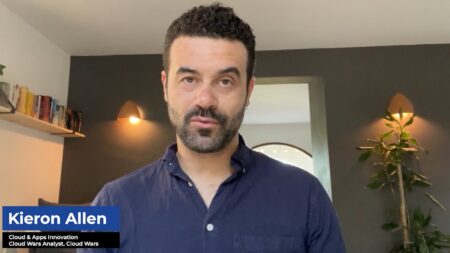Welcome to the AI Ecosystem Report, featuring practitioner analyst and entrepreneur Toni Witt. This series is intended to deliver the timely intelligence about artificial intelligence (AI) you need to get up to speed for an upcoming client engagement or board meeting.
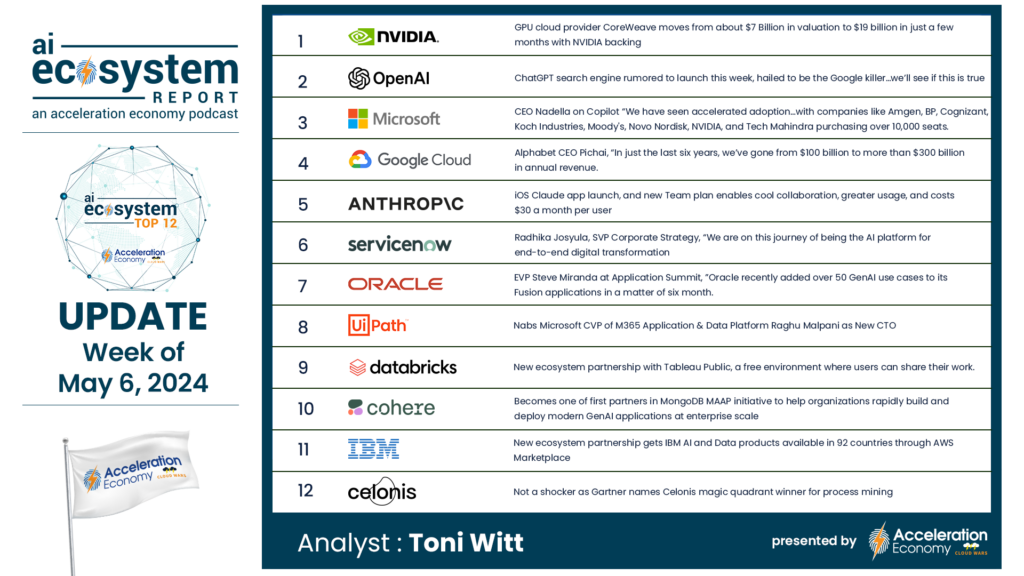
Highlights
Innovation

Microsoft and Coca-Cola have announced a strategic partnership spanning a five-year period. The partnership aims to accelerate their cloud and GenAI initiatives. Making a $1.1 billion commitment to Microsoft, Coca-Cola selected Microsoft to be its preferred cloud and AI platform.
This partnership will involve co-creating and jointly testing Azure OpenAI services across various functions of Coca-Cola’s business, including workforce productivity, marketing, manufacturing, and supply chain optimization. They’re also testing how GenAI-powered virtual assistants can help employees improve customer and partner engagement experiences.
Coca-Cola’s migration of all applications and cloud operations to Azure sets a precedent for other firms in the vertical to invest more in AI, potentially leading to more innovation, economic output, and improved working conditions.
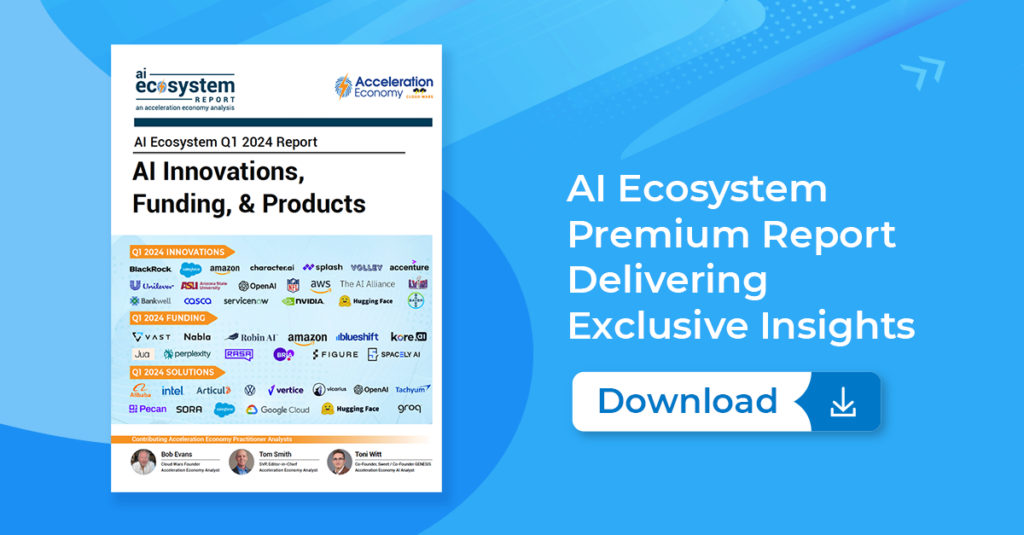
The AI Ecosystem Q1 2024 Report compiles the innovations, funding, and products highlighted in AI Ecosystem Reports from the first quarter of 2024. Download now for perspectives on the companies, investments, innovations, and solutions shaping the future of AI.
Funding

NVIDIA has acquired startup Run:ai for around $700 million. Run:ai is known for its developer platform that maximizes the efficiency of existing infrastructure for AI workloads. It aids organizations in better managing compute resources, enabling them to train, deploy, and run models faster and at a lower cost.
NVIDIA and Run:ai have been collaborating since 2020, optimizing NVIDIA’s infrastructure on top of Run:ai’s software tooling. Run:ai offers customers a joint bundle of its services on top of DGX, one of NVIDIA’s AI development platforms.
This acquisition reflects NVIDIA’s strategic focus on Israel, its second-largest market outside the US, where it employs over 3,000 employees.
Solution of the Week

The International Olympic Committee (IOC) outlined plans to leverage AI in the Olympic Games, focusing on three major points:
- AI could help identify promising athletes worldwide.
- It can aid in personalizing training methods for athletes.
- The technology can make games fairer by improving judging and from a business lens. Part of this includes enhancing the viewing experience for people watching from home.
Some of these AI applications will be rolled out in the next games, taking place in Paris this summer.
Partnering with Intel, the IOC has been working on a project recording the jumping heights and speeds of kids in villages in Senegal. They use AI to crunch that data and predict the athletic potential of the participants based on data analysis, suggesting suitable sports for the individuals.
AI is also expected to play a role in optimizing training regimens, similar to its use in the NFL to enhance player safety and fan engagement. These developments indicate a significant shift towards data-driven decision-making and performance optimization in sports.
Ask Cloud Wars AI Agent about this analysis











